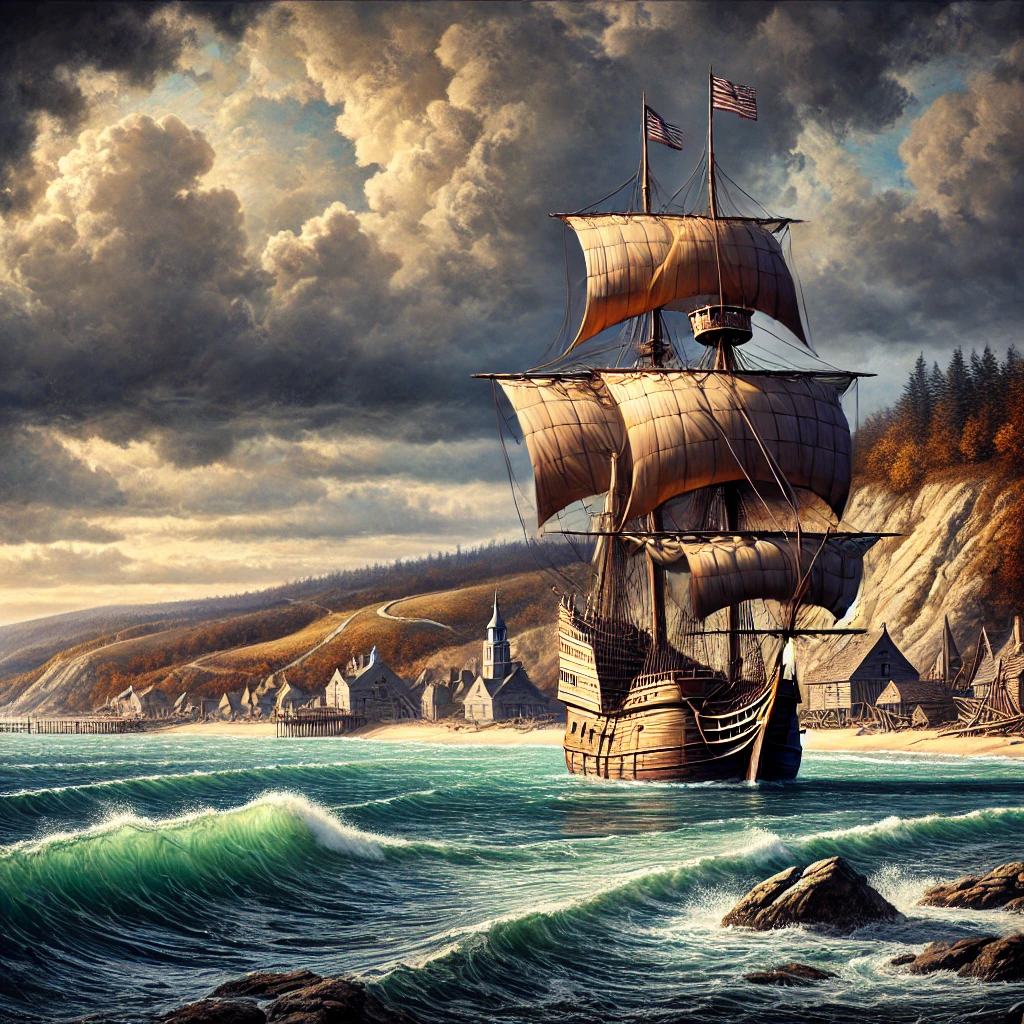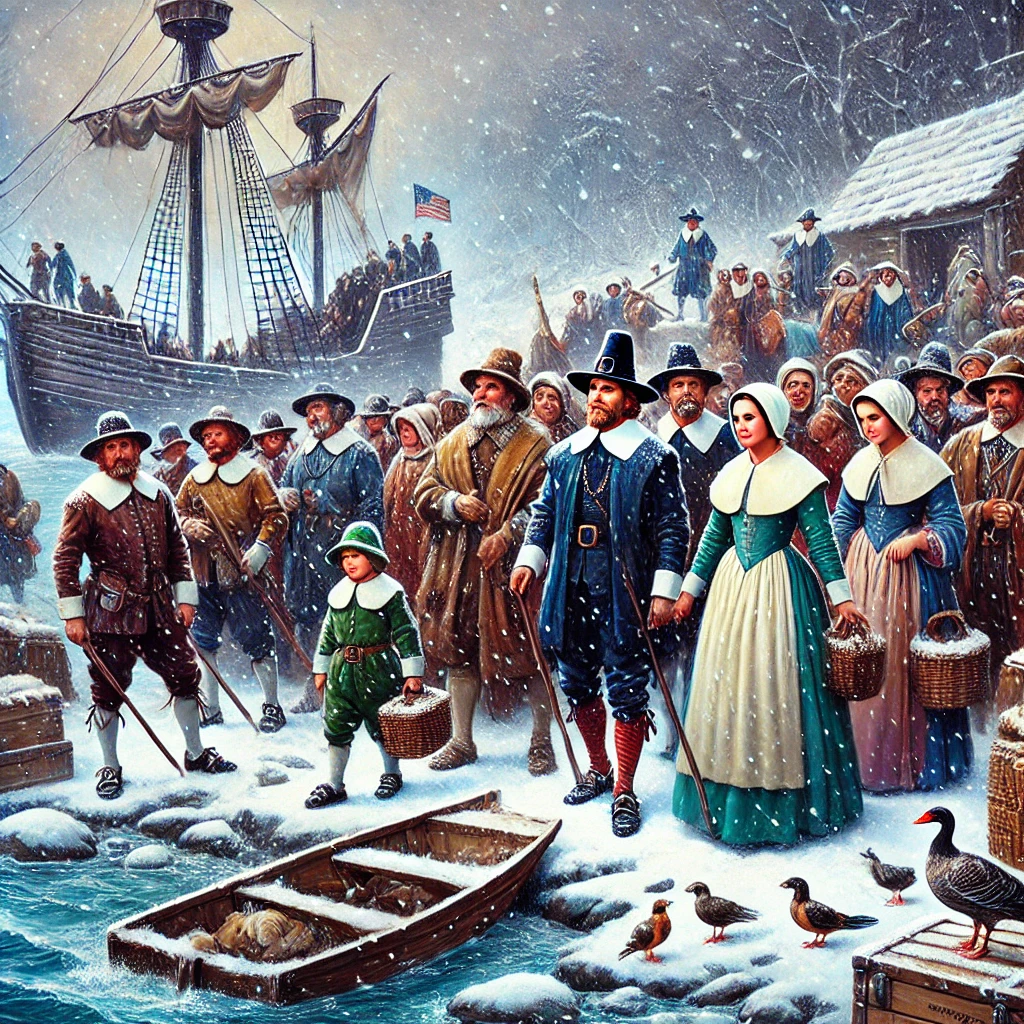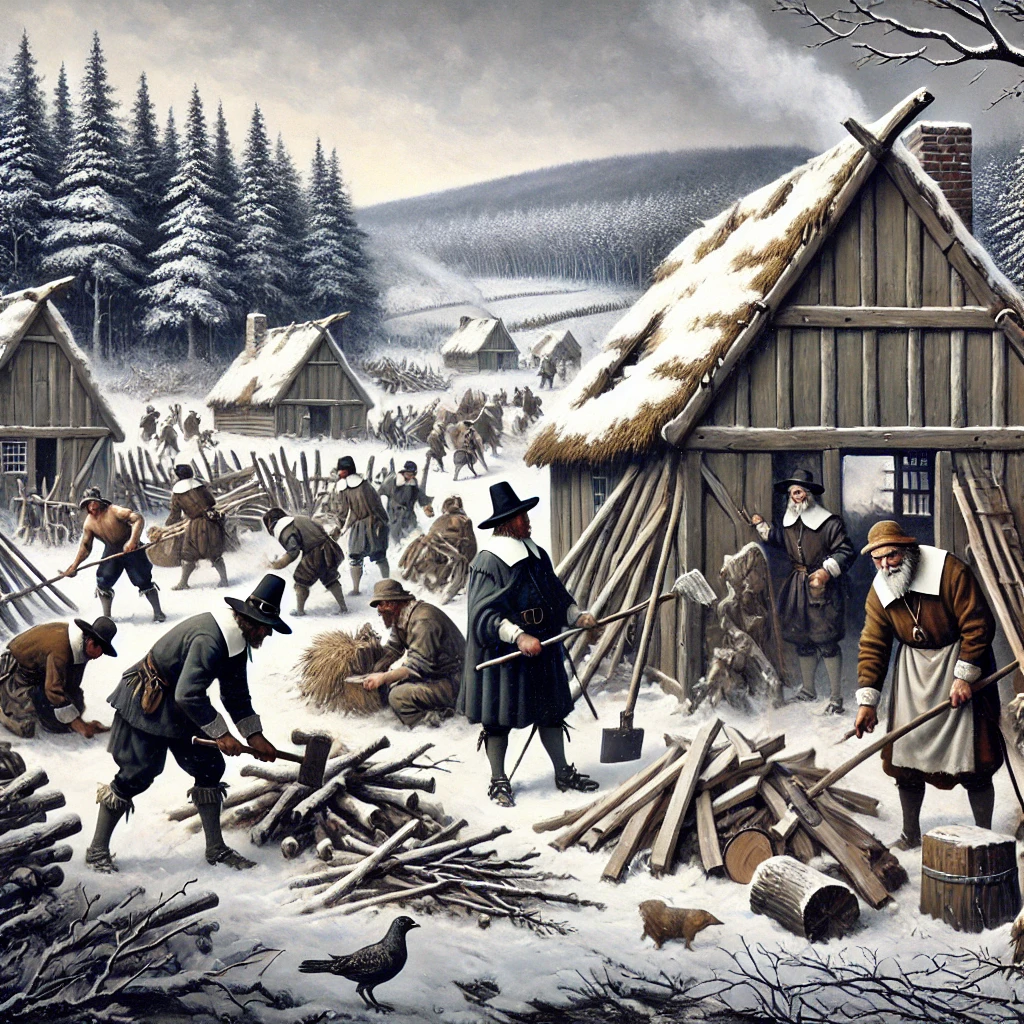December 18th, 1620, marked a significant chapter in American history as the Mayflower Pilgrims, seeking religious freedom, landed at Plymouth Rock in present-day Massachusetts. This event laid the foundation for the Plymouth Colony, an enduring symbol of courage, faith, and the pursuit of liberty. Their journey and settlement have left a profound mark on American identity and the broader historical narrative.

The Voyage Across the Atlantic
The Mayflower’s journey was neither simple nor smooth. Carrying 102 passengers and a crew of approximately 30, the ship set sail from England in September 1620. The passengers, collectively known as the Pilgrims, were a mix of religious separatists and adventurers. They sought to escape religious persecution and establish a community where they could freely practice their beliefs.
Enduring harsh weather and cramped conditions, the Pilgrims’ voyage across the Atlantic lasted over two months. Originally destined for Virginia, the ship was blown off course, eventually anchoring near Cape Cod in November 1620. This unplanned location set the stage for their historic settlement at Plymo
Establishing the Plymouth Colony
The Pilgrims faced immediate challenges upon landing. The harsh New England winter, lack of adequate shelter, and limited supplies took a toll on their group. Nearly half of the original settlers perished during the first winter. Despite these hardships, the survivors persevered, driven by their faith and determination to create a new life.
The Pilgrims’ interactions with the local Indigenous peoples were pivotal. The Wampanoag tribe, led by Chief Massasoit, played a crucial role in the colony’s survival. Figures like Squanto, who spoke English and understood European customs, acted as intermediaries, teaching the settlers vital agricultural practices. These relationships culminated in the celebrated first Thanksgiving, a symbol of cooperation and gratitude.

The Legacy of Plymouth Rock
The Plymouth Colony became a cornerstone of American history, embodying ideals of self-governance and religious freedom. The signing of the Mayflower Compact—an agreement to form a political body and abide by majority rule—set a precedent for democratic governance in the New World. It inspired future colonial charters and the eventual formation of the United States Constitution.
Beyond governance, the Pilgrims’ journey and settlement highlighted themes of resilience, community, and the quest for freedom. These values resonate deeply in American culture and continue to influence national identity.
Lasting Impact on Modern Society

The story of the Mayflower and Plymouth Rock remains a powerful symbol in contemporary society. It serves as a reminder of the sacrifices and aspirations of those who sought a better life. Each year, the United States commemorates Thanksgiving as a national holiday, reflecting the enduring legacy of the Pilgrims and their partnership with Indigenous peoples.
However, modern perspectives also encourage a more nuanced understanding of this history. While the Pilgrims’ achievements are celebrated, there is growing recognition of the complex and often tragic impacts of European colonization on Indigenous populations. This balanced view fosters a more comprehensive appreciation of the past and its lessons for the future.
The landing at Plymouth Rock is more than just a historical milestone; it is a testament to the enduring human spirit. As we reflect on December 18th, 1620, we honor the resilience of the Mayflower Pilgrims and the foundational values they brought to American shores, acknowledging both their triumphs and the broader historical context of their journey.
